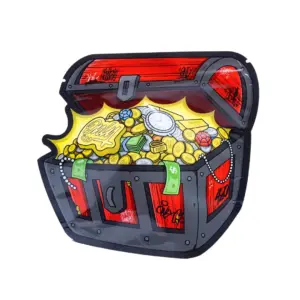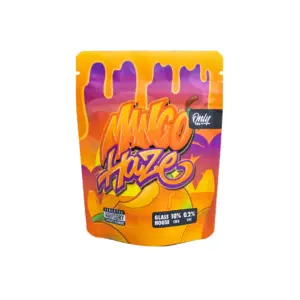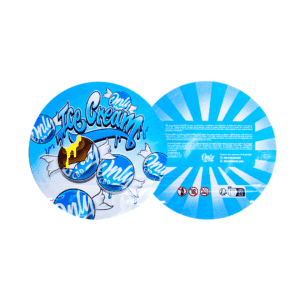Asthma is the most common respiratory disorder. It affects approximately 10% to 3% of people. CBD oil for asthma provides relief to many people. It was even prescribed and available in American pharmacies before the 1930s.
According to the CDC (Centers for Disease Control and Prevention), the number of people with asthma continues to grow.
Asthma symptoms occur in waves called asthma attacks. These attacks can be triggered by food, tobacco, pollution, allergies, etc. Although people of all ages experience asthma, it primarily begins during childhood.
More than a quarter of a million people die annually worldwide from asthma. Asthma is an atopic disease in which an allergen can induce clinical airway inflammation, bronchial hyperresponsiveness, and reversible airway obstruction.
According to recent estimates, asthma affects 300 million people worldwide and more than 22 million in the United States. (Today's Medical News)
The rise in asthma could be caused by an increase in pollen in the air due to climate change, according to Healthline.com. Energy savings in buildings, urban air pollution, and overprescription and use of antibiotics could also be the reason asthma is on the rise.
Hemp oil cures asthma
For asthma patients with severe symptoms, cannabidiol should be the obvious choice. Its effectiveness has been proven in laboratory tests and clinical trials, and, as mentioned, it was commonly prescribed by doctors for asthma before cannabis prohibition began in the 1930s. So why would it suddenly be bad now, or why would it no longer work?
In addition to asthma, people use CBD for pain treatment, the anxiety, the sleep disorders, etc.
The comments described below and listed in the comments section are self-explanatory, but the number of success stories online is overwhelming. Moreover, considering the long-term negative side effects of regular asthma medications, it's hardly surprising.
Laboratory studies
A 2005 study in guinea pigs revealed that endogenous cannabinoid receptor agonists inhibit C-fiber activation through CB2 cannabinoid receptors and maxi-K+ channels in guinea pig airways. Another 2008 study in guinea pigs concluded that cannabinoid receptor activation prevents antigen-induced asthma-like reactions in guinea pigs.
A 2012 review of cannabinoids found that activation of CB1 receptors on bronchial nerve endings causes a reduction in airway resistance by acting on airway smooth muscle and may be beneficial for airway hyperresponsiveness and asthma.
In 2015, scientists conducted a study in mice treated with CBD. They demonstrated a protective effect of CBD on the inflammatory response in an animal model of asthma.
Clinical studies
As early as 1978, scientists conducted a clinical case study involving five women with asthma using THC treatment. Three conclusions can be drawn from this clinical study:
- THC produces bronchodilation (reduction of airway resistance)
- It keeps patients in a stable state and increases peak expiratory flow rate (PEFR) and forced expiratory volume per second (FEV1).
- The rate of onset, magnitude, and duration of the bronchodilator effect were dose-related.
Preclinical studies in 2011 suggested that allergen exposure specifically activates the lung-associated endocannabinoid system (ECS) in patients with allergic asthma.
Asthma – Side effects of medications
Corticosteroids are often used for severe asthma. Although short-term side effects are relatively uncommon, long-term use can cause long-term side effects.
Long-term side effects
- High blood pressure (hypertension)
- Diabetes
- Brittle bones (osteoporosis)
- Weight gain
- Increased risk of infection
- Eye disorders (cataracts and glaucoma)
- Thinning of the skin
- Tenderness (easy bruising)
Short-term side effects
Inhaled corticosteroids are generally well managed by the human body in the short term. There are virtually no short-term side effects.
CBD Dosage for Asthma
Having published so many articles on medical conditions, it goes without saying that CBD dosage depends primarily on the severity of the condition. Big Pharma medications require specific dosages and prescriptions from a doctor due to the often dangerous side effects and risks of overdose.
Cannabidiol, in this sense, has no negative side effects, and overdoses are impossible. Therefore, an individualized dosage prescription based on a doctor's subjective assessment is not necessary. In fact, CBD is so harmless that the FDA has classified it as a supplement.
Reports from people who have used CBD oil for mild asthma range from 30 to 40 mg daily in two or three doses. People with severe asthma symptoms have told us they use between 60 and 80 mg daily, and sometimes even 100 mg.
Once you start using cannabidiol, you'll begin to feel the subtle effects much better after a while. You'll know whether you need more or if you've had enough when you experiment with different dosage levels and the number of intakes per day. There's a slight resemblance to coffee in this regard.

























